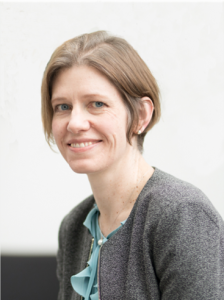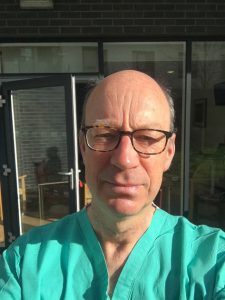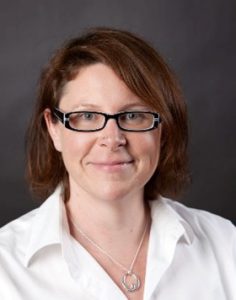Explore Bio-Solutions webinars
Explore is a series of webinars allowing companies and organisations to hear from leading researchers at the University of Edinburgh. The series features academics from multiple disciplines sharing their expertise, discussing the latest advances and presenting cutting-edge innovations. Explore Bio-Solutions offers a unique opportunity for organisations across multiple sectors to learn about the research that is going on at the University of Edinburgh.
September 2022 webinars:
- Skin science for skin health and personal care, Speakers: Professors Sara Brown and Richard Weller – Recording available here!
- Biofilms and their industrial applications, Speakers: Professor Cait MacPhee and Dr Gavin Melaugh – Recording available here!
- Bio-Materials from biocomposites in construction to nanomaterials in human health, Speakers: Dr Dipa Roy and Dr Michael Chen – Recording available here!
Skin science for skin health and personal care – Recording available here!
Prof Sara Brown & Prof Richard Weller
The University of Edinburgh hosts clinical academic dermatologists whose expertise spans molecular genetics, cell biology, immunology, human physiology and clinical practice. The skin is the largest of the body’s organs filling functions in immune surveillance, thermoregulation, sensation and water conservation. It is a protective barrier and interface for much of our physical and social interactions with our environment. Skin diseases therefore can have a profound impact. Today, 1.9 billion people, almost a third of the worlds’ population, are affected by over 3,000 skin diseases. Two leaders in the Edinburgh Skin Interest Network – Professors Sara Brown and Richard Weller – will outline their work, describe key techniques and research models, to highlight opportunities for industry collaboration in skin science relevant across clinical, medical, pharmaceutical and personal care sectors.

Speaker Sara Brown is Professor of Dermatology and a Wellcome Trust Senior Research Fellow at the University of Edinburgh, and Honorary Consultant Dermatologist in NHS Lothian. In her clinical practice, Sara specialises on the care of children and adults with atopic eczema and rare genetic skin conditions. The Brown research laboratory focuses on understanding genetic mechanisms in eczema and other atopic or allergic conditions. Sara’s work uses a human skin organoid model with manipulation of selected genetic and environmental effects to answer detailed questions about skin pathophysiology with direct relevance to clinical care .

Speaker Richard Weller has a Personal Chair of Medical Dermatology at the Centre for Inflammation Research. His research has two focuses: the effect of ultraviolet on systemic health; and on eczema. He is also an honorary NHS Consultant Dermatologist with a particular interest in medical dermatology and eczema. His research has identified an important vitamin D independent mechanism by which sunlight has cardiovascular benefits through the release of nitric oxide from skin. He has co-founded a spin-out company, Dr Weller, based on this research. The company has generated several patents and developed and manufactured the first sunscreen to protect from UV, whilst at the same time allowing the normal healthy release of NO from sun exposed skin.
Biofilms and their industrial applications – Recording available here
Prof Cait MacPhee & Dr Gavin Melaugh
Biofilms are found in almost all of Earth’s environments. They find applicability in many fields and can be both problematic and beneficial; hence control of biofilm production and destruction is key. We are a leading actor in the National Biofilms Innovation Centre, which harnesses the UK’s Academic and Industrial Strength in Biofilms and aims to bring together the best of UK research and businesses to drive the translation of biofilm research into new market solutions.In this webinar, our leading researchers will introduce our Biofilms expertise and discuss how Biofilms can be useful in many fields from medicine to industrial manufacturing to food industries and how to manage, engineer, and prevent them.

Speaker Cait MacPhee is Professor of Biological Physics in the Institute of Condensed Matter and Complex Systems in the School of Physics and Astronomy at The University of Edinburgh, and part of the Physics of Living Matter and Soft Matter Physics groups. She is a Fellow of the Institute of Physics, the Royal Society of Chemistry and the Royal Society of Biology. In 2016 she was elected a Fellow of the Royal Society of Edinburgh, and awarded a CBE in the New Year’s Honours List.

Speaker Gavin Melaugh is Chancellor’s Fellow in the School of Physics and Astronomy and in the School of Engineering. His group uses a combination of experiments and simulatins to investigate collective behaviours in microbial systems such as bacterial biofilms and aggregates. More recently his group have been focusing on the biophysics of environmentally relevant microbes such as those in wastewater treatment.
Bio-Materials from biocomposites in construction to nanomaterials in human health – Recording available here!
Dr Dipa Roy & Dr Michael Chen
This webinar showcases some of the breadth of materials research at the University of Edinburgh, from biological materials with semi- and non-structural applications to advanced materials such as nanomaterials with applications in biology and medicine.
Biocomposites for a Greener Future: The importance of sustainable materials emerging from renewable and biobased resources is growing significantly due to increasing environmental awareness. Natural fibers like hemp flax, jute, bamboo, wood etc. can be used to produce biocomposites for various semi-structural to non-structural applications. Natural fillers like cellulose, lignin, saw dust are also used extensively to produce biocomposites. Biocomposites are already used in some industries, but their demand is growing further as they are more environmentally friendly than their synthetic counterparts. Natural fibre reinforcements are now available commercially in large scale and a steady supply chain exists. Several challenges have been identified such as moisture absorption and poor fibre/matrix interfacial bonding, but research activities are ongoing to find ways to mitigate these issues. More academia-industry collaborative research is needed to explore the full potential of biocomposites and diversify its applications in the real world. This presentation will cover a brief outline of the characteristics of biocomposites and their development trends for diversified applications.
Nanotechnologies for Advanced Drug Delivery Systems and Biosensing: The market for advanced drug delivery systems is rising rapidly, because both clinical therapy and basic biological research rely on novel and innovative delivery techniques. In this seminar, I would like to introduce our research development in innovating and improving nanotechnologies based drug delivery, including diamond nanoneedle arrays for high-throughput intracellular delivery, and nanoparticles for enhanced cancer therapy and antibacterial applications. Beyond drug delivery systems for disease treatment, biosensing for disease diagnosis is of equal importance. Therefore, I would also like to describe some of our work in using nanotechnologies to detect biological molecules and exosomes for potential applications of diagnosis.

Speaker Dr Dipa Roy is Reader in Composite Materials and Processing at the University of Edinburgh (UoE). She has been working in the field of polymers and composites for the last 23 years. She has been the editor of an Elsevier book on Biocomposites. After joining University of Edinburgh in 2017, she has led several projects on sustainable composites as Principal Investigator. She has received support from and is doing collaborative research with industries like Hexcel Advanced Composites Ltd., Johns Manville, PALTECH, TAF Composites Ltd. and she also holds a patent on dielectric heating of polymeric materials.

Speaker Dr Michael Chen is currently working in the Institute for Bioengineering in the School of Engineering at The University of Edinburgh as a Senior Lecturer in Chemical Engineering. Dr Chen’s research is focused on biomaterials, biomedical engineering, and the application of nanomaterials in biology and medicine. In these areas, he has been working on physical (microneedle & nanoneedle arrays), chemical (nanomaterials), and biological (microalgae) tools for drug delivery and sensing. He has 12 granted patents in drug delivery technologies in major countries and regions, mostly in the USA and Europe. Some of these technologies have been invested by venture companies for commercialisation.
Previous webinars
Let these Sustainability themed webinars showcasing aspects of the Bio-Solutions expertise at the University of Edinburgh inspire you to submit a question:
- Exploring Biomaterials – Prof Lynne Regan, Dr Davide Michieletto and Prof Chris French
- High Throughput Approaches to Engineering Biology – Prof Susan Rosser
- Sustainable Chemistry using Engineered Biology – Dr Stephen Wallace with Dr Jude Huggan
- Sustainable Metal Recycling – Prof Louise Horsfall and Prof Jason Love
- Timber as a building material– Professor Luke Bisby and Dr Tom Reynolds
- Waste to Wealth: Opportunities for Sustainability across the Lifecycle of Plastics– Dr Jenni Garden and Dr Joanna Sadler